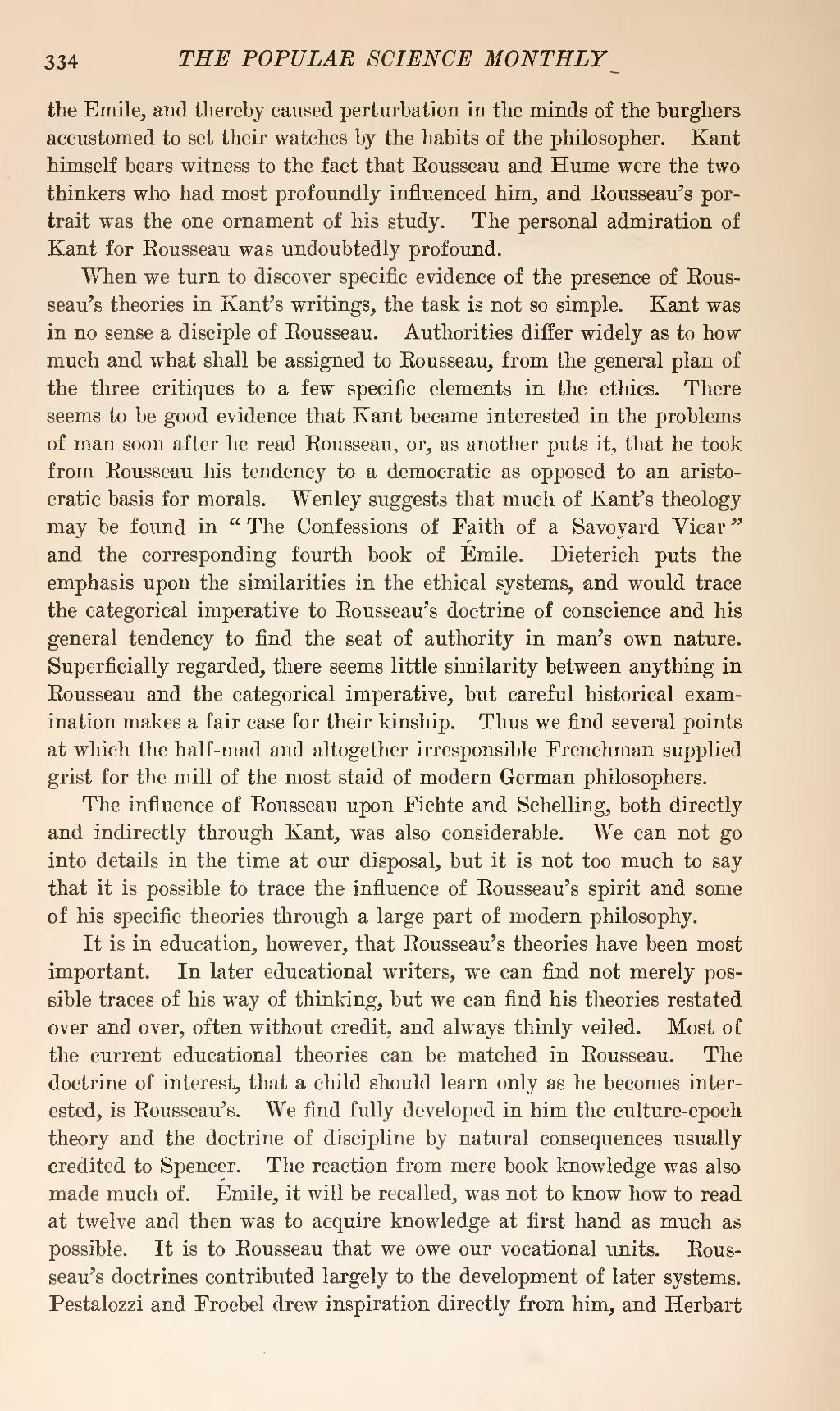the Emile, and thereby caused perturbation in the minds of the burghers accustomed to set their watches by the habits of the philosopher. Kant himself bears witness to the fact that Rousseau and Hume were the two thinkers who had most profoundly influenced him, and Rousseau's portrait was the one ornament of his study. The personal admiration of Kant for Rousseau was undoubtedly profound.
When we turn to discover specific evidence of the presence of Rousseau's theories in Kant's writings, the task is not so simple. Kant was in no sense a disciple of Rousseau. Authorities differ widely as to how much and what shall be assigned to Rousseau, from the general plan of the three critiques to a few specific elements in the ethics. There seems to be good evidence that Kant became interested in the problems of man soon after he read Rousseau, or, as another puts it, that he took from Rousseau his tendency to a democratic as opposed to an aristocratic basis for morals. Wenley suggests that much of Kant's theology may be found in "The Confessions of Faith of a Savoyard Vicar" and the corresponding fourth book of Émile. Dieterich puts the emphasis upon the similarities in the ethical systems, and would trace the categorical imperative to Rousseau's doctrine of conscience and his general tendency to find the seat of authority in man's own nature. Superficially regarded, there seems little similarity between anything in Rousseau and the categorical imperative, but careful historical examination makes a fair case for their kinship. Thus we find several points at which the half-mad and altogether irresponsible Frenchman supplied grist for the mill of the most staid of modern German philosophers.
The influence of Rousseau upon Fichte and Schelling, both directly and indirectly through Kant, was also considerable. We can not go into details in the time at our disposal, but it is not too much to say that it is possible to trace the influence of Rousseau's spirit and some of his specific theories through a large part of modern philosophy.
It is in education, however, that Rousseau's theories have been most important. In later educational writers, we can find not merely possible traces of his way of thinking, but we can find his theories restated over and over, often without credit, and always thinly veiled. Most of the current educational theories can be matched in Rousseau. The doctrine of interest, that a child should learn only as he becomes interested, is Rousseau's. We find fully developed in him the culture-epoch theory and the doctrine of discipline by natural consequences usually credited to Spencer. The reaction from mere book knowledge was also made much of. Émile, it will be recalled, was not to know how to read at twelve and then was to acquire knowledge at first hand as much as possible. It is to Rousseau that we owe our vocational units. Rousseau's doctrines contributed largely to the development of later systems. Pestalozzi and Froebel drew inspiration directly from him, and Herbart

